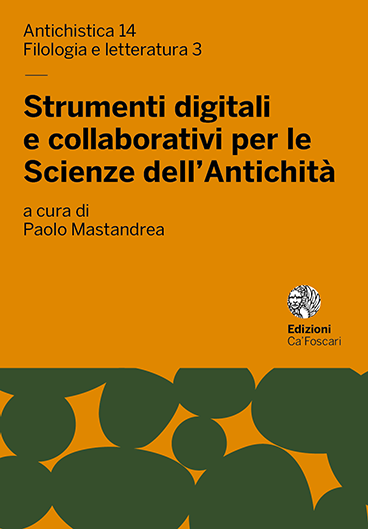Series |
Antiquity Studies
Edited book | Digital and Collaborative Tools for Antiquity Studies
Chapter | Latin WordNet, una rete di conoscenza semantica per il latino e alcune ipotesi di utilizzo nel campo dell’information retrieval
Latin WordNet, una rete di conoscenza semantica per il latino e alcune ipotesi di utilizzo nel campo dell’information retrieval
Abstract
This paper describes the creation of Latin WordNet, addressing the methods of construction, the data structure, possible applications and further developments. More notably, a possible expansion of Latin WordNet is the construction of an additional data structure in order to improve the chances of the network to represent the semantic shift taking diachrony into account. The original Princeton WordNet, on whose ground Latin WordNet is developed, does not take into account the semantic shift of words in time, considering the meanings identified by synsets as if existing in a model of vocabulary where a language has not an history: the purpose of Princeton WordNet was obviously the representation of in-use contemporary English, but this model is weak when we come to describe the semantic structures of a finished language such as Latin. In the second part, this paper shows the connections between semantic networks and information retrieval moving from the problems pertaining to the automatic disambiguation of contexts and the exploitation of ontologies in the process of sense retrieval on semantically annotated corpora.
Submitted: Aug. 14, 2017 | Published Nov. 29, 2017 | Language: it
Keywords Semantic network • WordNet • Dictionaries • Information retrieval • Lexicography • Ontologies
Copyright © 2017 Stefano Minozzi. This is an open-access work distributed under the terms of the Creative Commons Attribution License (CC BY). The use, distribution or reproduction is permitted, provided that the original author(s) and the copyright owner(s) are credited and that the original publication is cited, in accordance with accepted academic practice. The license allows for commercial use. No use, distribution or reproduction is permitted which does not comply with these terms.
Permalink http://doi.org/10.14277/6969-182-9/ANT-14-10
